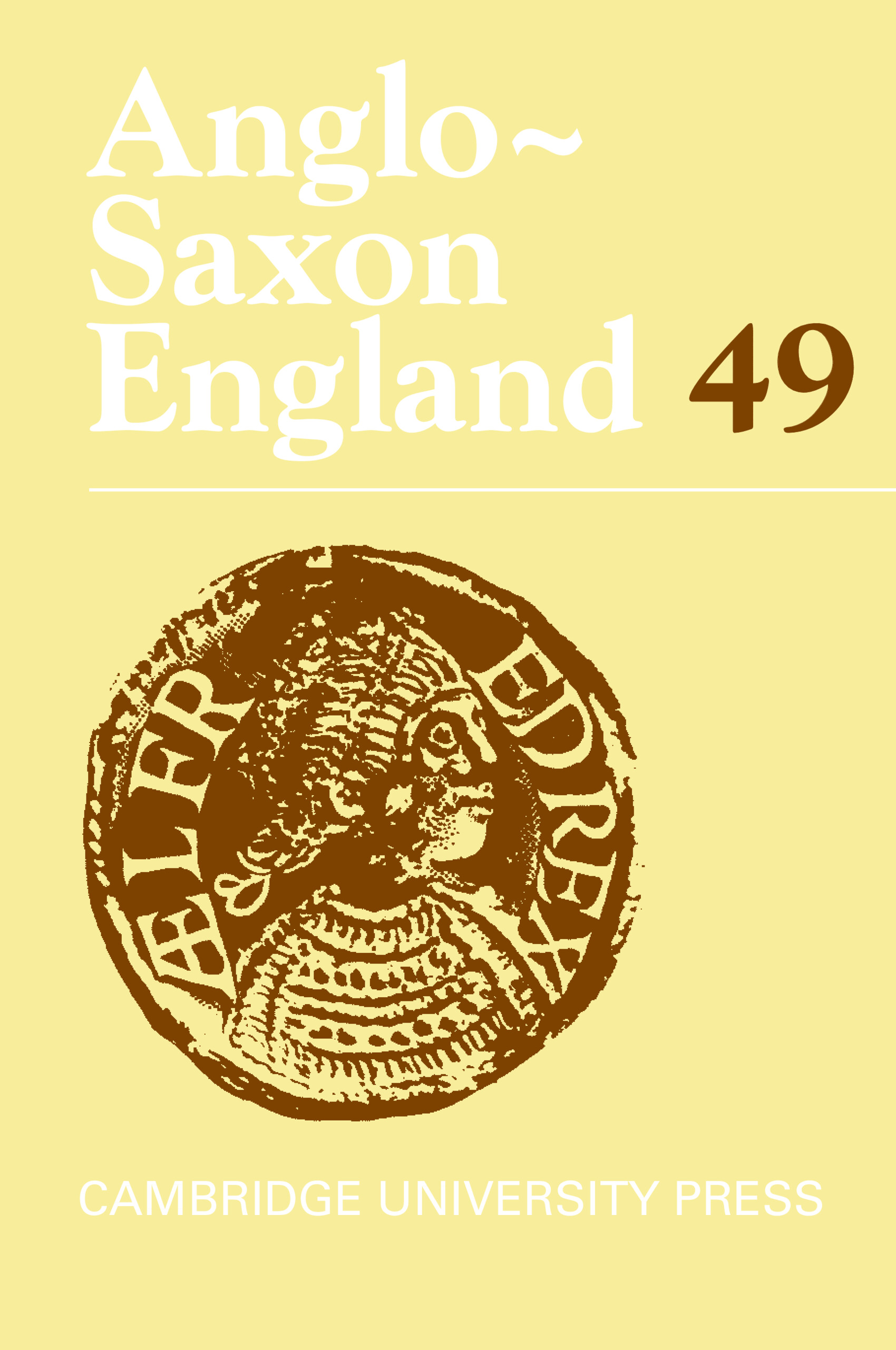Crossref Citations
This article has been cited by the following publications. This list is generated based on data provided by
Crossref.
WAREHAM, ANDREW
2012.
Fiscal policies and the institution of a tax state in Anglo‐Saxon England within a comparative context1.
The Economic History Review,
Vol. 65,
Issue. 3,
p.
910.
Green, Judith A.
2013.
Forest laws in England and Normandy in the twelfth century.
Historical Research,
Vol. 86,
Issue. 233,
p.
416.
Williams, Ann
2013.
Regional Communities and Royal Authority in the Late Old English Kingdom: The Crisis of 1051–1052 Revisited.
History,
Vol. 98,
Issue. 329,
p.
23.
O’Donnell, Thomas
2014.
The Old English Durham, the Historia de sancto Cuthberto, and the Unreformed in Late Anglo-Saxon Literature.
The Journal of English and Germanic Philology,
Vol. 113,
Issue. 2,
p.
131.
Timofeeva, Olga
2016.
Alfredian Press on the Vikings.
Journal of English Linguistics,
Vol. 44,
Issue. 3,
p.
230.
Konshuh, Courtnay
2016.
Anraedin theirUnraed: The Æthelredian Annals (983–1016) and their Presentation of King and Advisors.
English Studies,
Vol. 97,
Issue. 2,
p.
140.
Stafford, Pauline
2017.
THE MAKING OF CHRONICLES AND THE MAKING OF ENGLAND: THE ANGLO-SAXON CHRONICLES AFTER ALFREDProthero Lecture.
Transactions of the Royal Historical Society,
Vol. 27,
Issue. ,
p.
65.
TIMOFEEVA, OLGA
2018.
Aelfred mec heht gewyrcan: sociolinguistic concepts in the study of Alfredian English.
English Language and Linguistics,
Vol. 22,
Issue. 01,
p.
123.
Hansen, Therese Holt
2019.
Olav Tryggvason – fremdeles en heltekonge?.
Historisk tidsskrift,
Vol. 98,
Issue. 4,
p.
309.
Jahner, Jennifer
Steiner, Emily
and
Tyler, Elizabeth M.
2019.
Medieval Historical Writing.
2022.
Sociolinguistic Variation in Old English.
Vol. 13,
Issue. ,
Cesario, Marilina
2023.
Readings the Skies in the Peterborough Chronicle.
Culture and Cosmos,
Vol. 27,
Issue. 0102,
p.
27.
Thomas, Rebecca
2024.
Chronicling Gruffudd ap Llywelyn In the Eleventh Century.
The Welsh History Review / Cylchgrawn Hanes Cymru,
Vol. 32,
Issue. 2,
p.
233.
Ramos, Eduardo
2024.
Imagined Invasions: Muslim Vikings in Laȝamon’s Brut and Middle English Romances.
Speculum,
Vol. 99,
Issue. 2,
p.
432.
Shinkawa, Seiji
2024.
FromPeople's KingtoKing of a Country: The Development of the Place Element Modifying the Title Paired in Apposition with a Personal Name Traced in thePeterborough Chronicle.
Transactions of the Philological Society,
Vol. 122,
Issue. 1,
p.
151.
Blundell, Michael C.
2024.
The Battle Of Stamford Bridge.
Scandinavian Studies,
Vol. 96,
Issue. 1,
p.
24.
Shinkawa, Seiji
2025.
King Alfred, Alfred King, the King Alfred
, or
Alfred the King
: The Development of the Relative Order of Personal Names and Their Titles in Apposition Traced in the
Peterborough Chronicle
.
Journal of English Linguistics,
Vol. 53,
Issue. 1,
p.
3.


